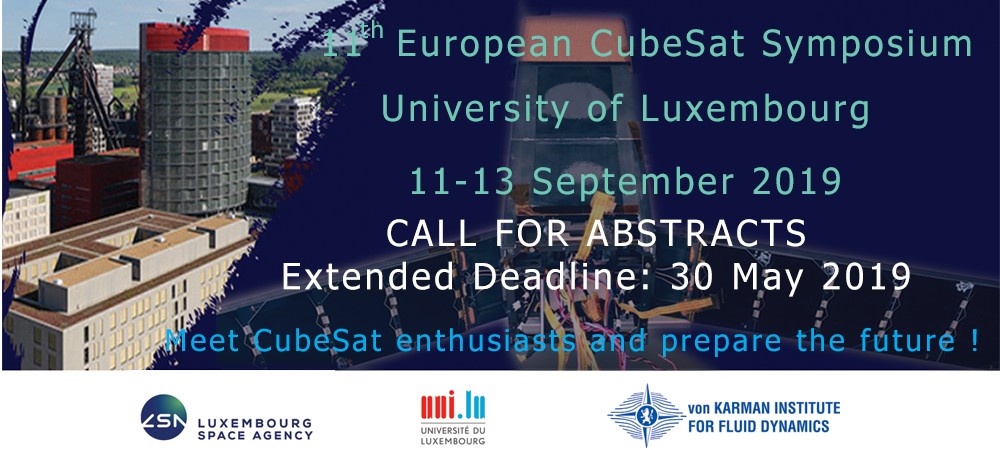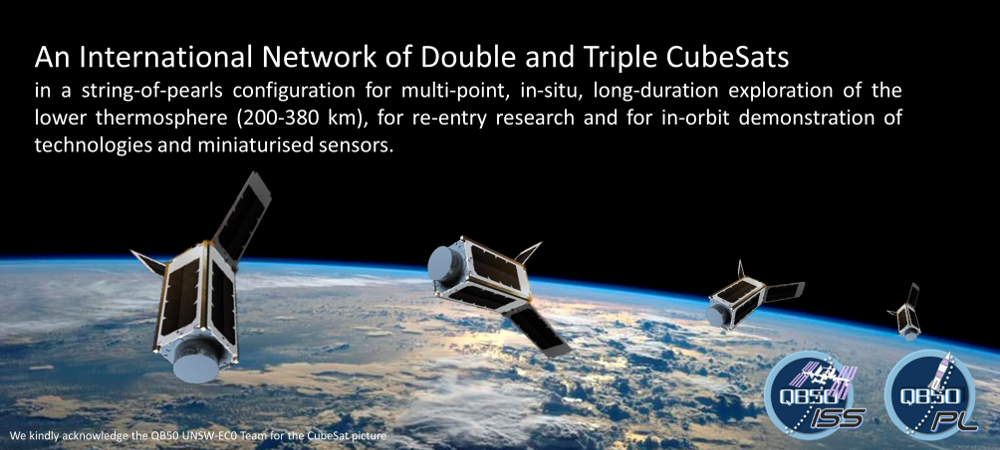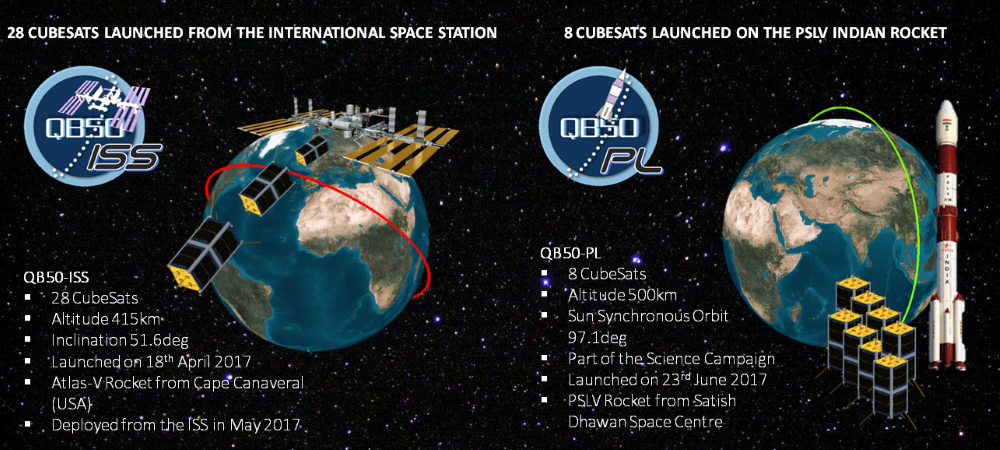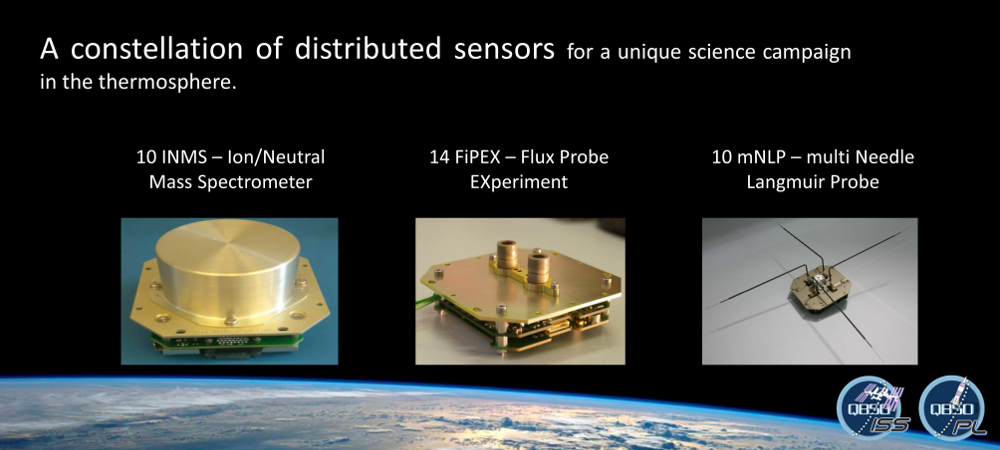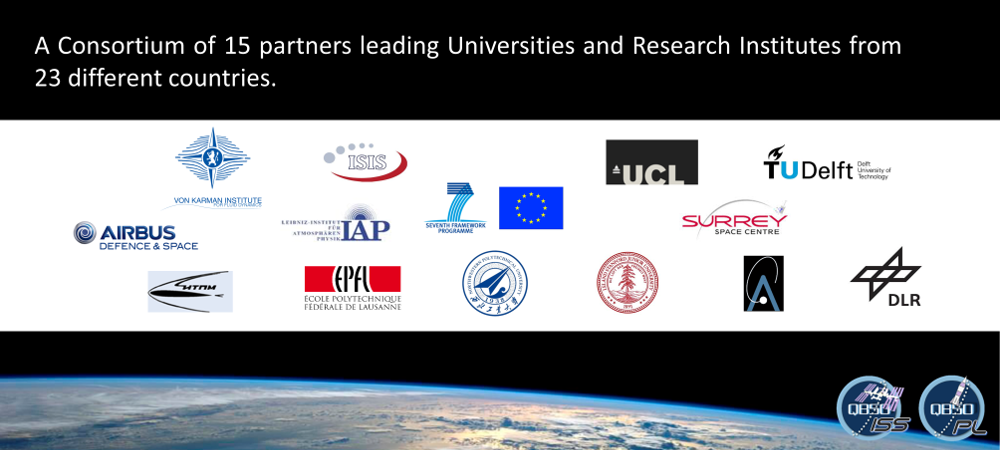|
|
Coordinator |
|
|
|
|
The VKI coordinates the activities of the consortium, the cubesat community, the system engineering activities, the ground segment, procures the main launcher and acts as the interface to the funding source Research Executive Agency. Moreover the VKI develops the technology in-orbit demonstrator cubesat Qarman. |
|
|
|
|
|
von Karman Institute, Rhode-St.-Genese (VKI), Belgium www.vki.ac.be |
|
|
|
|
|
|
|
|
Ground Segment |
|
|
|
|
EPFL provides with the EPFL Satellite Control Software that enables the communication of the ground station with a cubesat. It also enables the creation of small ground station networks. Its use is recommended. |
|
|
|
|
|
Ecole Polytechnique Federale de Lausanne (EPFL), Lausanne, Switzerland space.epfl.ch |
|
|
|
BIRA contributes to the project computational infrastructure and data processing capabilities |
|
|
|
|
|
Belgian Institute for Space Aeronomy (BIRA), Brussels, Belgium www.aeronomie.be |
|
|
|
|
|
|
|
|
Science |
|
|
|
|
Mullard Space Science Laboratory (MSSL), University College London, Dorking, UK |
|
|
|
|
|
Mullard Space Science Laboratory (MSSL), University College London, Dorking, UK www.ucl.ac.uk/mssl |
|
|
|
IAP support the project with the scientific consulting. |
|
|
|
|
|
Institute for Atmospheric Physics (IAP), Kuehlungsborn, Germany www.iap-kborn.de |
|
|
|
|
|
|
|
|
Space Segment |
|
|
|
|
NPU supports the mission with the coordination of the Chinese and Asian cubesats, a mission control centre. NPU also develops its own cubesat Ao Xiang-1. |
|
|
|
|
|
North Western Polytechnical University (NPU), Xi’an, Shaanxi,P.R. China english.nwpu.edu.cn |
|
|
|
Stanford supports the mission possibly with a mission control centre. Stanford develops its own satellite for QB50 called Discovery. |
|
|
|
|
|
|
|
|
|
TUD conducts research into formation flying of cubesats. |
|
|
|
|
|
|
|
|
|
DLR is supporting the project with studies for the in-orbit demonstration of drag sails. |
|
|
|
|
|
German Centre for Aerospace (DLR), Bremen, Germany www.dlr.de |
|
|
|
SSC develops an advanced cubesat attitude determination and control system. In addition it designs and manufactures a technology demonstrating satellite called InflateSail. |
|
|
|
|
|
|
|
|
|
|
|
|
|
|
Launch Segment |
|
|
|
|
ISIS is charged with the design and manufacturing of the deployment system and coordinates the main launch campaign. In addition ISIS coordinates the Precursor Launch campaign and the engineering and manufacturing of the precursor satellites. |
|
|
|
|
|
Innovative Solutions in Space (ISIS), Delft, Netherland www.isispace.nl |
|
|
|
SSLLC supports the projects partners on aspects of the United States authorities and liaises with NanoRacks. |
|
|
|
|
Space Systems LLC (SSLLC), Atherton, USA |
|
|
|
|
|
|
|
|
|
Support to Mission Definition and Implementation |
|
|
|
|
Airbus France and Germany support the project with special consulting related to Product and Quality Assurance and System Engineering |
|
|
|
|
|
Astrium (AST), Bremen/Les Mureaux, Germany/France www.astrium.eads.net |
|
|
|
ITAM supports the consortium with analyses of satellite aerodynamics and lifetime predictions. |
|
|
|
|
|
Institute of Theoretical and Applied Mechanics (ITAM), Novosibirsk, Russia www.itam.nsc.ru |
|

